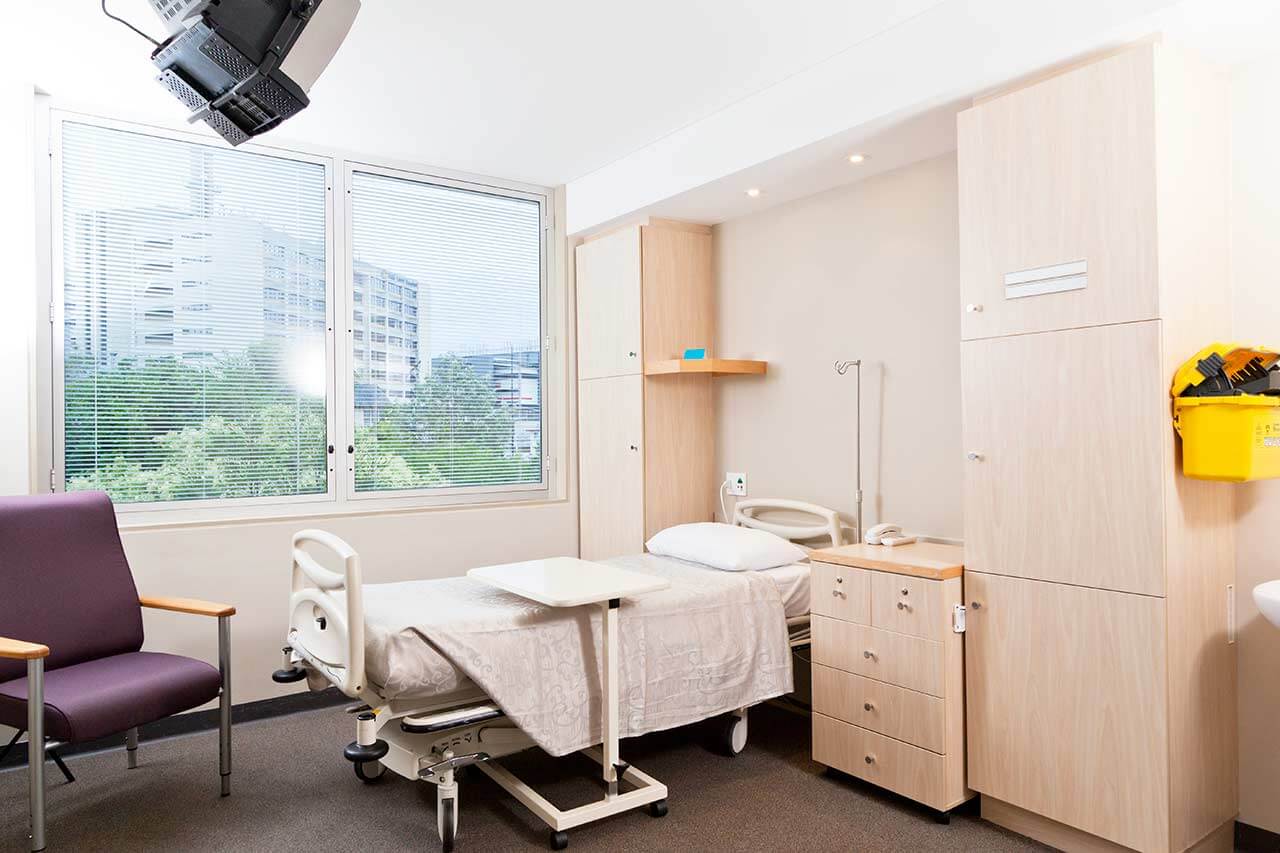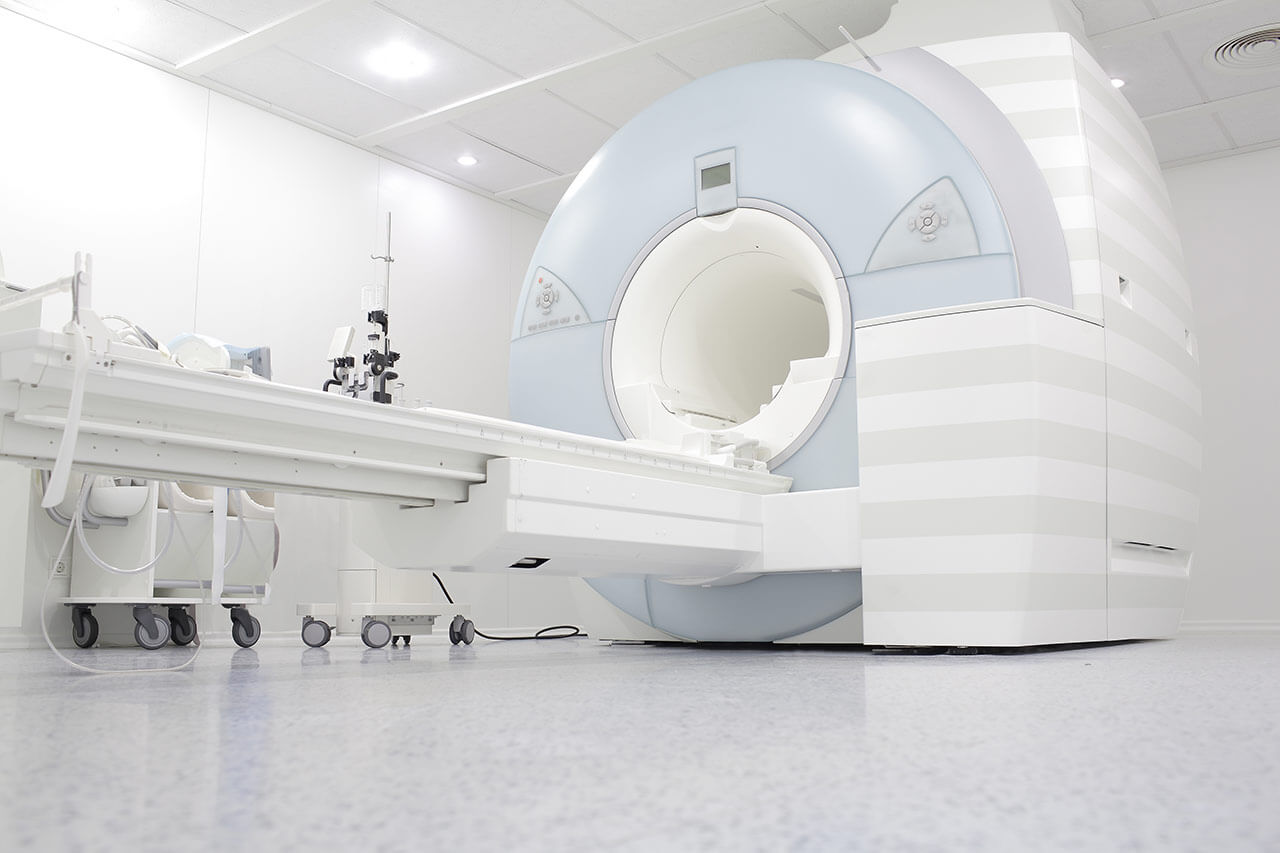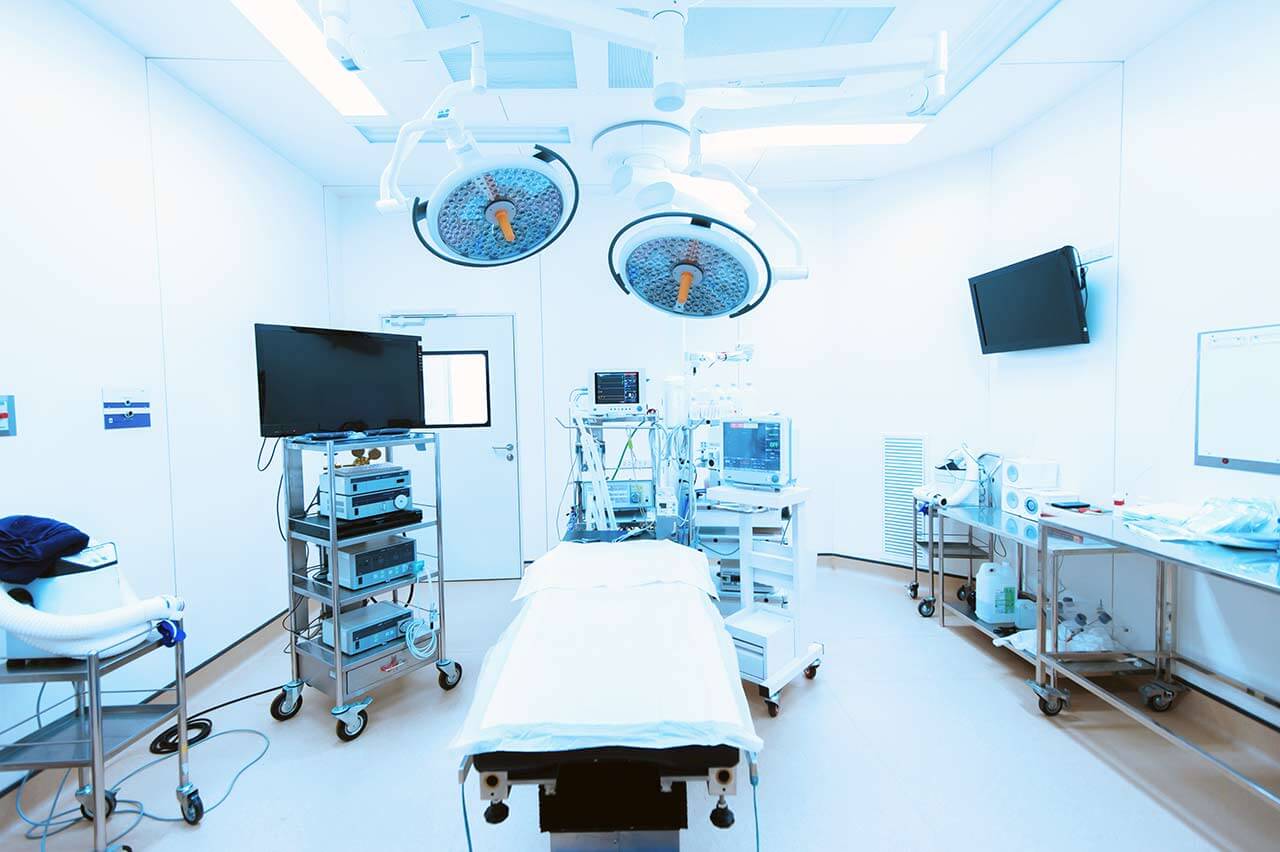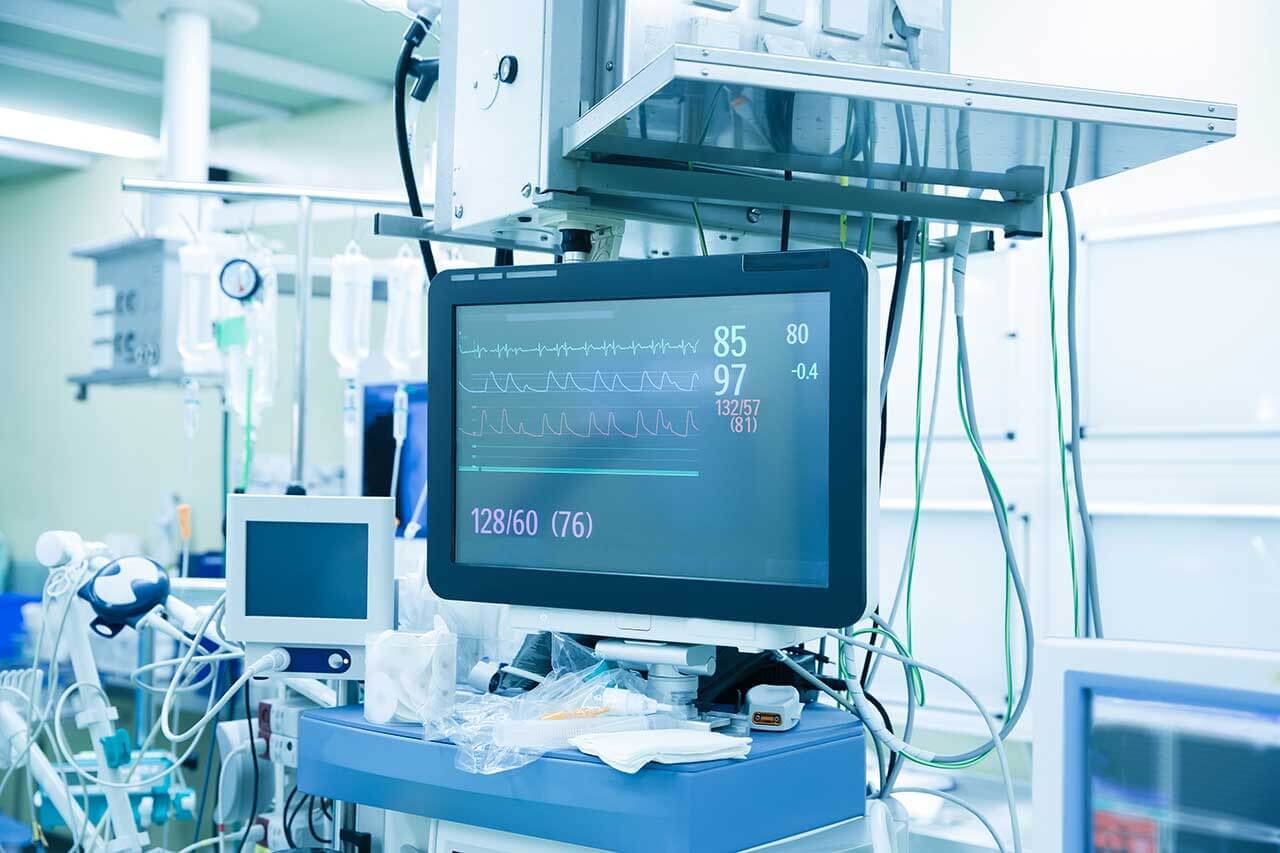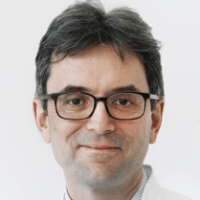
The program includes:
- Initial presentation in the hospital
- Clinical history taking
- Physical examination
- Laboratory tests:
- complete blood count
- biochemical analysis of blood
- TSH, free T3, free T4
- indicators of inflammation
- coagulation tests
- Renal scintigraphy
- Ga-68 DOTATATE PET/CT (if indicated)
- Lutetium-177-DOTATATE treatment
- Full body scintigraphy after 24 hours
- Full body scintigraphy after 48 hours
- Symptomatic treatment
- Cost of essential medicines
- Nursing services
- Stay in the hospital with full board
- Accommodation in 2-bedded room
- Elaboration of further recommendations
How program is carried out
During the first visit, the doctor will carry out a general physical examination and go through the results of previous laboratory and instrumental tests. After that, you will undergo the necessary additional tests such as the assessment of liver and kidney function, scintigraphy of the skeleton and salivary glands, somatostatin receptor imaging with Ga-68 DOTATATE PET/CT. This will allow the doctor to assess how effective the radionuclide therapy with Lutetium-177-DOTATATE will be and how well you will tolerate it. Also, the doctor will calculate your individual dosage of the radionuclide.
Radionuclide therapy with Lutetium-177-DOTATATE is carried out via intravenous administration of a solution with the radioactive isotope Lutetium-177-DOTATATE. The solution is injected through a catheter. This is a short procedure, as the infusion usually takes no more than 20 minutes.
During the procedure, you will need to apply cooling bags to the salivary glands, as Lutetium-177-DOTATATE partially accumulates in the salivary glands, affecting their function and causing dry mouth. You will also receive intravenous saline solutions and amino acid solutions to protect your kidneys.
After the infusion of Lutetium-177-DOTATATE, you will stay in a specially equipped (radiation-shielded) ward for 48 hours. The drug is quickly excreted by the kidneys, and after 48 hours you will no longer be dangerous to others. During these 48 hours, you can read, use a mobile phone, tablet or computer – all these devices will not be a source of radiation in the future.
Follow-up examinations include whole-body scintigraphy or computed tomography in 24 hours and 48 hours after the procedure. Based on the results of the examination, the doctor will determine whether one procedure is enough for you, or whether you will need to visit the hospital again. As a rule, 1-2 procedures are required for achieving a stable positive result. Procedures are carried out with an interval of 8 weeks.
Service
You may also book:
 BookingHealth Price from:
BookingHealth Price from:
About the department
The Department of Nuclear Medicine at the University Hospital Rechts der Isar Munich offers the full range of services in this area. Key clinical areas include the diagnostics and treatment of tumors, diseases of the thyroid gland, kidneys, brain and heart. For this purpose, doctors have at their disposal the necessary medical equipment of the latest generation: devices for PET, PET/CT, SPECT/CT, etc. After comprehensive diagnostics, doctors of the medical facility assess the advisability of radioisotope therapy. In 2020, there was founded the Section for Theranostics – an innovative approach in medicine, providing for the creation of medications that can be simultaneously used for both diagnostic and therapeutic purposes. The department was one of the first specialized medical institutions of its kind in Germany and has been providing patients with high-quality medical care for many years.
The Head Physician of the department is Prof. Dr. med. Wolfgang Weber. This is an excellent specialist in his field of competence, who was educated in Germany, after which he was trained at the University of California, Los Angeles, and worked for almost 5 years in a senior position at the world-famous Memorial Sloan Kettering Cancer Center in the USA. The doctor's general clinical experience is about 20 years. His key specialization is radionuclide cancer therapy. Prof. Weber is the author of more than 250 articles in prestigious scientific journals, and also actively publishes his works on medical Internet resources.
The department has 13 beds, which makes it the largest medical facility in Germany, specializing in the diagnostics and treatment with radioactive isotopes. With more than 5,500 outpatient thyroid examinations, more than 5,000 PET scans, more than 2,000 conventional nuclear medicine examinations, as well as more than 800 inpatients every year, the Department of Nuclear Medicine at the University Hospital Rechts der Isar Munich is one of the most respected centers of nuclear medicine throughout Europe.
The department's medical team consists of 5 senior physicians and 11 assistant physicians, 15 technicians, 3 nurses with specialized PET training, and 11 nursing nurses. To provide interdisciplinary, comprehensive medical care, the department works closely with other departments of the hospital. In addition, the department is part of the Roman Herzog Comprehensive Cancer Center (Roman-Herzog-Krebszentrums), which contributes to the most effective cancer therapy.
The most significant achievements of the department should also be noted – the recognition as a certified Center of Excellence for the diagnosis and treatment of neuroendocrine tumors (certificate of the European Neuroendocrine Tumor Society (ENETS)), as well as the certification of the PET-CT Section by the European Association of Nuclear Medicine (EANM).
The department's range of medical services includes:
| Diagnostic options |
|
| Therapeutic options |
|
| Other diagnostic and therapeutic services |
Curriculum vitae
Dr. Weber is a graduate of the Faculty of Medicine at the Technical University of Munich. He had his training in Nuclear Medicine at the Technical University of Munich and in 2001 joined the Faculty of the Department of Nuclear Medicine at the same university. From 2004 to 2007, he was Assistant Professor in the Department of Molecular and Medical Pharmacology at the University of California, Los Angeles (UCLA). In 2007, he was appointed Professor and Head of the Department of Nuclear Medicine at the University Hospital Freiburg in Germany. In 2013, he returned to the United States and took up the position of Head Physician of the Department of Nuclear Medicine at the Memorial Sloan Kettering Cancer Center, and also became Professor for Radiology at the Weill Cornell Medical College. He held both positions until the end of 2017.
Dr. Weber's research activities are focused on molecular imaging of cancer for planning and monitoring therapeutic interventions. He is also interested in targeted radionuclide therapy for cancer and theranostics. Dr. Weber has published over 250 articles in leading scientific journals, including the Journal of Clinical Oncology, PNAS, and the Nature series. He has served on the editorial board of several scientific journals such as the Journal of Nuclear Medicine, European Journal of Nuclear Medicine and Molecular Imaging, Clinical Cancer Research, Journal of Clinical Oncology.
Photo of the doctor: (c) Klinikum rechts der Isar der Technischen Universität München
Sources:
About hospital
The University Hospital Rechts der Isar Munich was founded in 1834. It combines long traditions with the very latest advances in modern medicine. The medical facility includes 33 specialized departments and 20 interdisciplinary centers, where patients can receive top-class medical care in all medical fields.
The hospital annually admits more than 65,000 inpatients for diagnostics and treatment, and about 250,000 outpatients receive effective medical care. The hospital also performs more than 40,000 surgical procedures every year, and about 2,100 babies are born here annually. One of the most significant achievements of the medical facility can be called the first transplantation of both arms above the elbow performed in 2008. The surgery that lasted 15 hours, and in which 40 doctors of various medical specialties took part, became a real sensation in the scientific world. Thanks to a unique surgical procedure, the doctors managed to give the patient new hands.
In addition, the employees of the hospital are actively involved in research activities, in which they study various diseases, as well as develop new therapeutic options for their treatment. It should be noted that the research institutes of the hospital are among the most reputable research organizations in the world. A striking example can be considered the Roman Herzog Comprehensive Cancer Center, whose specialists cooperate closely with the Comprehensive Cancer Center Munich in order to find new treatment methods for cancers.
The university hospital has a strict quality management system to maintain a high level of patient care. Since 2011, the hospital has been certified in accordance with DIN EN ISO 9001:2015 at the national and international level. The medical facility was also recertified by TÜV Rheinland in 2020.
The hospital annually provides medical services not only to German citizens, but also to thousands of patients from different countries of the world. This indicates that the hospital has an excellent reputation in the international medical arena and takes on the most complex clinical cases where other medical centers are unable to help the patient.
Photo: (с) depositphotos
Accommodation in hospital
Patients rooms
The patients of the University Hospital Rechts der Isar Munich live in comfortable single and double rooms with modern design. An accompanying person may stay with the patient in the single room. All patient rooms have an ensuite bathroom with shower and toilet. The furnishings of a standard patient room include an automatically adjustable bed, a bedside table for personal belongings, a table and chairs for receiving visitors, a wardrobe, a telephone and a TV. The patient rooms also have Wi-Fi.
The hospital also has enhanced-comfort rooms, corresponding to the level of a high-end hotel. Such patient rooms have additional amenities: a safe, a mini fridge and upholstered furniture.
Meals and Menus
The patients of the hospital are offered a balanced and healthy three meals a day: breakfast, lunch and dinner. The patients have a choice of three different menus for lunch – a classic full menu, as well as a dietary and vegetarian one. When cooking meals, the chefs comply with the current recommendations of the German Society for Nutritional Medicine (DGEM) and the German Nutrition Society (DGE).
If for some reason you do not eat all the foods, you will be offered an individual menu. The hospital also houses a cafeteria with a large assortment of hot and cold drinks, snacks and desserts.
Further details
Standard rooms include:
Religion
Religious services are available upon request.
Accompanying person
Your accompanying person may stay with you in your patient room or at the hotel of your choice during the inpatient program.
Hotel
You may stay at the hotel of your choice during the outpatient program. Our managers will support you for selecting the best option.
The hospital offers a full range of laboratory tests (general, hormonal, tests for infections, antibodies, tumor markers, etc.), genetic tests, various modifications of ultrasound scans, CT scans, MRI and PET / CT, angiography, myelography, biopsy and other examinations. Treatment with medications, endoscopic and robotic operations, stereotaxic interventions is carried out here, modern types of radiation therapy are also used. The hospital offers patients all the necessary therapeutic techniques.
- CAR T-cell therapy
- Autologous and allogeneic bone marrow transplantation
- Transcatheter aortic valve implantation (TAVI)
- Radical and organ-preserving interventions for kidney cancer
- Iridoplasty and iridotomy with Nd-YAG laser
These are acute and chronic leukemias, solid malignant tumors, heart failure, cardiac arrhythmias, heart valves stenosis and insufficiency, vasculitis, benign prostatic hyperplasia, pathologies of retina and vitreous body, Guillain-Barré syndrome, myasthenia gravis and other pathologies.
- Hematology and oncology
- Cardiology
- Nephrology
- Urology
- Ophthalmology
Over 877 highly qualified physicians work at the hospital.
